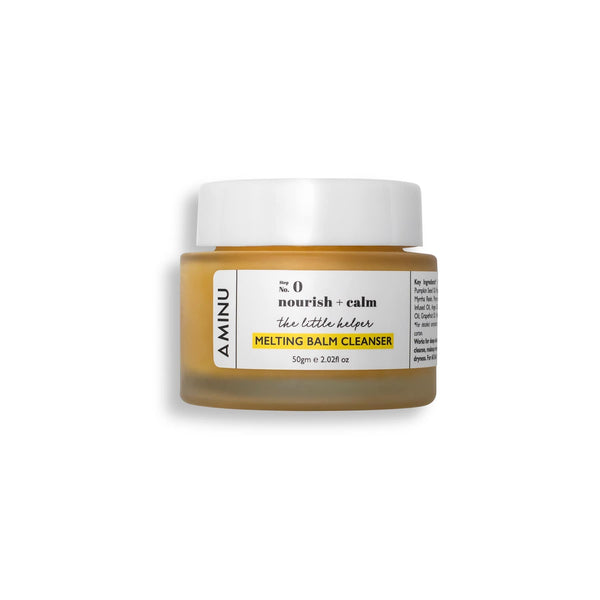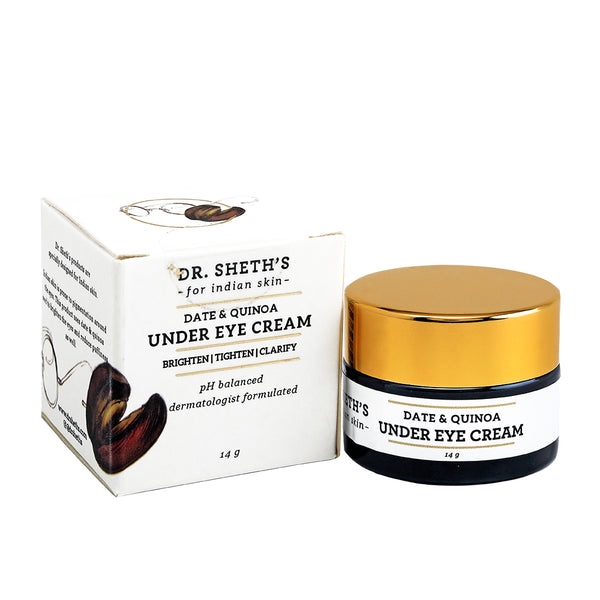Rosacea has always been such a grey area for everyone to understand. One thing that we link Rosacea with is rosy cheeks. But there’s so much more to it. Given that the root cause of rosacea is still unknown, it is not easy to diagnose this skin condition. However, it is important to diagnose this skin condition so that you can take immediate action in altering your skincare and diet. Know everything that you need to know to understand your skin better.
What is Rosacea?

Rosacea is a chronic inflammatory skin condition, which usually affects your face. You might look like you’re blushing all the time and may have a few red, pus-filled bumps. This flares up periodically and clears up on its own. The exact reason why rosacea occurs is unknown.
How to know if you have Rosacea?
It is not easy to recognise rosacea since it can be easily confused for eczema or an allergic reaction. Look back at your family history because you might have inherited this condition. To be very sure of the condition, you must visit a dermatologist who will perform tests and conclude your skin condition by eliminating other diseases.
Who is more prone to Rosacea?
Here are factors to look at and understand if you’re prone to rosacea:
1. Skin color
Rosacea can affect men and women and people of all races but it is more common amongst people with fair skin.
2. Age
People of all ages, including teenagers can suffer from this skin condition but it is more often found in middle-aged women.
3. Genetics
It is likely that your genes can influence the onset of this skin condition. People with Asian genes rarely have this skin condition due to their genetics. Individuals with Scandinavian, European, or Welsch descent are prone to rosacea.
4. Smoking
It did no good to you. If anything, smoking only increases your health-related problems and could even lead to this long-term skin inflammatory condition.
What causes Rosacea?

1. Diet
A spicy plate of hot samosas (Indian snack) or Cheetos may tempt you but it will do you more harm since your guts can easily be inflamed which will show up on your skin in the form of flushing and acne bumps. The same goes for hot drinks. They’re just not made for you since they can trigger your skin condition. You must also avoid edibles that have cinnamaldehyde like tomatoes, chocolate, citrus, cinnamon, etc.
Read more on how food affects your skin here.
2. Alcohol and wine
Alcohol and wine are made by fermenting. Hence, you must avoid alcoholic beverages and wine.
2. Bacteria
An intestinal bacteria called Helicobacter pylori which are associated with gastrointestinal disease and lead to acne rosacea.
3. Mites
A mite called demodex is found on the skin normally. However, when the number of this mite increases, it leads to acne.
4. Stress
Due to stress hormones, you might experience a change in your body temperature which could instantly trigger your skin inflammatory condition leading to redness and breakouts
What are the types of Rosacea?

Rosacea looks different for everybody. There are four types of rosacea:
1. Subtype one: This is associated with flushing, redness, and visible blood vessels. This is also called erythematotelangiectatic rosacea (ETR).
2. Subtype two: This is associated with flushing, itchy red spots, and pus-filled acne. This is called papulopustular rosacea.
3. Subtype three: This is associated with the thickening of the skin on the nose. This is called rhinophyma and is usually accompanied by another subtype of rosacea.
4. Subtype four: Symptoms of this are usually on the eyes. It could lead to swollen eyelids, eye redness, and irritation. This is called ocular rosacea.
What are the symptoms of Rosacea?
1. Symptoms for Subtype one:
A. Your skin will turn red due to flushing very often. This happens especially when you face temperature changes.
B. Your broken blood vessels will be visible.
C. If you have sensitive skin and can easily burn, it is one of the signs.
D. You may experience dry, flaky and rough skin.
2. Symptoms for Subtype two:
A. You will develop pus-filled acne or they may be simply filled with watery fluid. The types of bumps and acne differ from person to person.
B. Your skin will turn deep red often.
C. Your skin will be oily with raised skin patches.
D. Your skin will be sensitive with visible broken blood vessels.
3. Symptoms for Subtype three:
A. Your skin may thicken and mostly the skin on your nose may become thick. This is more likely in males than in females. You may also observe your skin on your cheeks and forehead thickening.
B. Your pores will enlarge.
C. Your skin will have a bumpy texture with visible broken blood vessels.
4. Symptoms for Subtype four:
A. Your eyes may be watery most of the time or bloodshot. Your eyes can be easily irritated and swollen. In rare cases, your vision may be blurred due to this sensitivity.
B. Your eyes will be extra sensitive to light.
C. Your eyes may feel gritty, dry and itchy at times.
D. You may even develop a cyst on your eyes.
E. You will be able to see broken blood vessels on your eyelids.
How to Control the symptoms of Rosacea?
To know how to control the symptoms, you must know what triggers rosacea. It is usually a hot environment, caffeine, stress, sugary or spicy diet, UV exposure, smoking, alcohol to name a few. While the number one thing to cut these factors, here are a few ways to help you cut them off.
1. Moisturise your skin well
Given that your skin is hypersensitive, you cannot pick any moisturiser off the rack. Make sure your products have very little to do with harsh chemicals but at the same time, keep your skin moisturised even in a dry environment. A suitable moisturiser for you would be Neemli Naturals Hibiscus & Saffron Night Cream that can hydrate your skin overnight.
2. Do not skip sunscreen
Sensitive or not, your skin needs SPF. You have to be very careful about exposing your skin to sun rays since your skin may be triggered only to give you flared acne very soon. Opt for a physical sunscreen that will not react with your skin’s chemistry but at the same time, it will sit on the top of your skin to protect your skin well. Our pick for you would be Dr Sheth's Oat And Zinc Mineral Sunscreen that will help you not just escape not just UV rays but also pollution and blue light damage.
3. Go indoors
Because your skin is hypersensitive, it will instantly pick up the signs of change of weather and prepare your skin to inflame. People with this skin condition must stay indoors unless required to step out. It is either this or you step out with complete skin protection which also includes calming your skin in intervals with the help of a mist or a toner. We’d pick Dear, Klairs Supple Preparation Facial Toner for your sensitive skin for its non-irritating formula.
4. Focus on eye care
Your eyes can be easily irritated and swollen. It is recommended that you double-check the ingredient list of your eye makeup, eye cream, and even the makeup remover. You must also avoid eyelash extension since synthetic products around your eyes may irritate your eyes easily. When it comes to makeup remover for such sensitive skin types, we swear by Aminu Little Helper Melting Balm Cleanser that has nothing but a mindful mixture of natural oil to help you avoid infection and safely remove your makeup.
What could be the skincare routine for Rosacea-affected skin?
Each individual’s skin has gone through a different journey and so you must consult with your dermatologist before using products for your skin condition. A simple routine that you could opt for is as follows:
1. Cleanse
Opt for a simple cleanser that does the job to remove your everyday gunk. A face wash or cleanser with a detergent is a strict no-no for you since this will trigger rosacea-prone skin. A cleanser of our choice would be Skog Birch Sap Facial Cleanser that soothes and cleanses your skin without drying it.
2. Tone
Your skin cannot tolerate hot weather and so you must spritz your skin whenever you feel hot to calm it. An age-old secret to tone your skin rightly is Rose Water and we love the truly organic Juicy Chemistry Organic Bulgarian Rose Water. Avoid exfoliating toners that are heavy on AHA since they can irritate your skin. However, a mild AHA-based product that has Lactic Acid since its molecular size is big and hence they won’t easily penetrate your skin.
3. Serum
Be very careful about what you apply to your skin. Serums containing active ingredients like Vitamin C, Retinols may not be your best friend since they are mostly available in an unstable form. To repair and hydrate your skin, you could include a Copper Peptide-based serum. We’d highly recommend Skinpot.Co Intense-repair Hydration Serum that not only has Copper Peptide but also a stable form of Vitamin C and Hyaluronic Acid. A perfect winner for you.
4. Sunscreen
In your AM routine, you have to include SPF. There are no two ways for this step. Your skin being hypersensitive, you must protect it from pollution, blue light, and UV rays. Pick a physical sunscreen that does not clog your pores and sits well on your skin. Make sure your products do not have harmful chemicals.
5. Eye cream
Keep it very simple for the eyes. Do not use products that could mildly irritate your eyes. To hydrate your eye sockets, use an organic and clean eye cream like Dr Sheth's Date & Quinoa Under Eye Cream that could help you diminish dark circles and even out pigmentation.
Read more about dark circles and pigmentation here.
Takeaway
Rosacea is a chronic skin inflammatory condition that can be often confused as an allergic reaction. The causes for rosacea are still unknown and hence to diagnose, you must visit a dermatologist. People with this skin condition have very sensitive skin and hence, they must ensure that the products they are using are free from harmful chemicals. You must also ensure that you’re following a simpler and cleaner diet to keep your guts and skin away from inflammatory conditions.
- Divya Salvi











